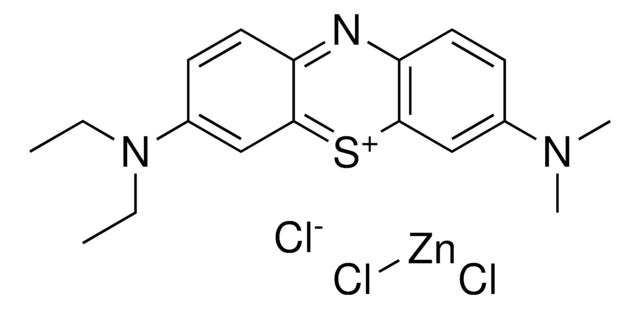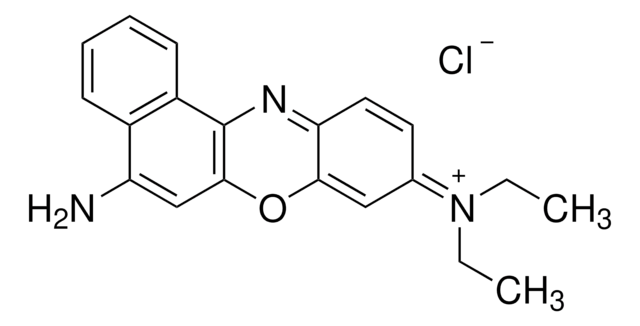861340
Thionin acetate salt
certified by the Biological Stain Commission, Dye content ≥85 %
Synonym(s):
3,7-Diamino-5-phenothiazinium acetate, Lauth’s violet
About This Item
Recommended Products
grade
certified by the Biological Stain Commission
Quality Level
form
powder
composition
Dye content, ≥85%
λmax
598 nm
application(s)
diagnostic assay manufacturing
hematology
histology
storage temp.
room temp
SMILES string
CC([O-])=O.Nc1ccc2nc3ccc(N)cc3[s+]c2c1
InChI
1S/C12H10N3S.C2H4O2/c13-7-1-3-9-11(5-7)16-12-6-8(14)2-4-10(12)15-9;1-2(3)4/h1-6H,13-14H2;1H3,(H,3,4)/q+1;/p-1
InChI key
OWXBIRAFHWASMS-UHFFFAOYSA-M
Looking for similar products? Visit Product Comparison Guide
General description
Application
Storage Class Code
13 - Non Combustible Solids
WGK
WGK 3
Flash Point(F)
Not applicable
Flash Point(C)
Not applicable
Personal Protective Equipment
Choose from one of the most recent versions:
Already Own This Product?
Find documentation for the products that you have recently purchased in the Document Library.
Customers Also Viewed
Our team of scientists has experience in all areas of research including Life Science, Material Science, Chemical Synthesis, Chromatography, Analytical and many others.
Contact Technical Service













